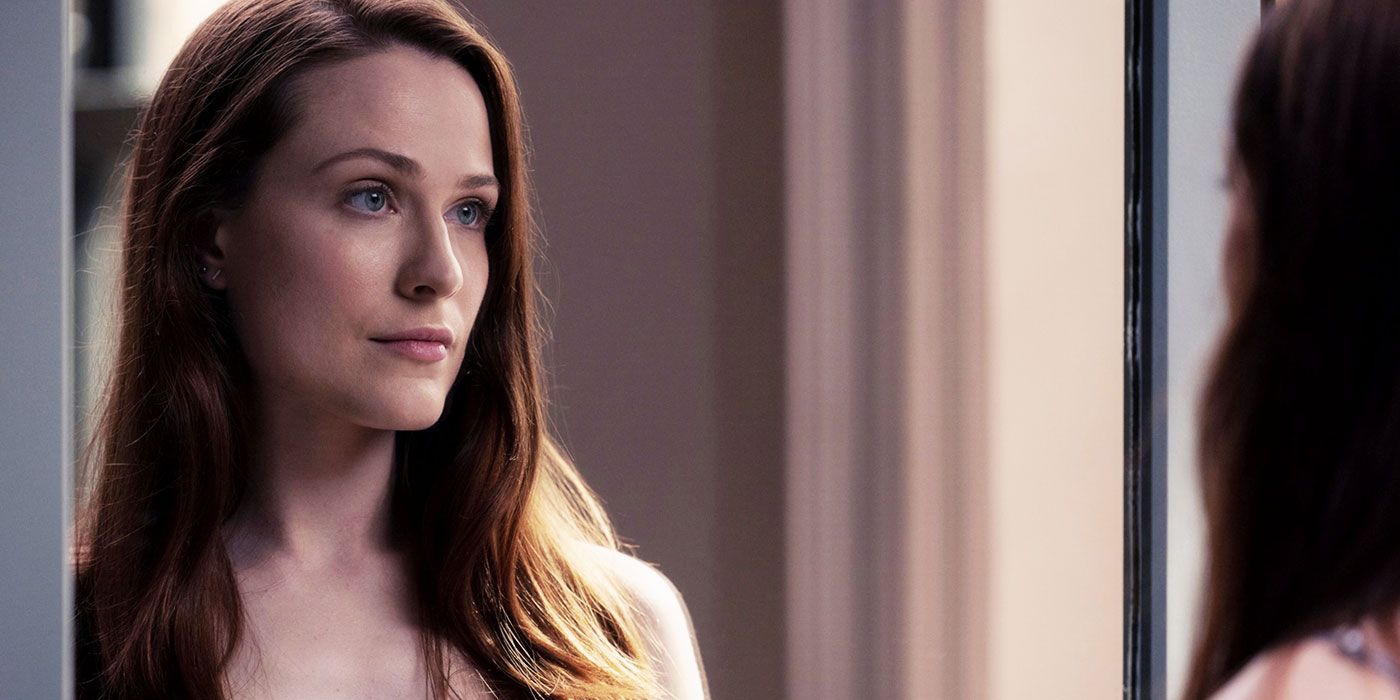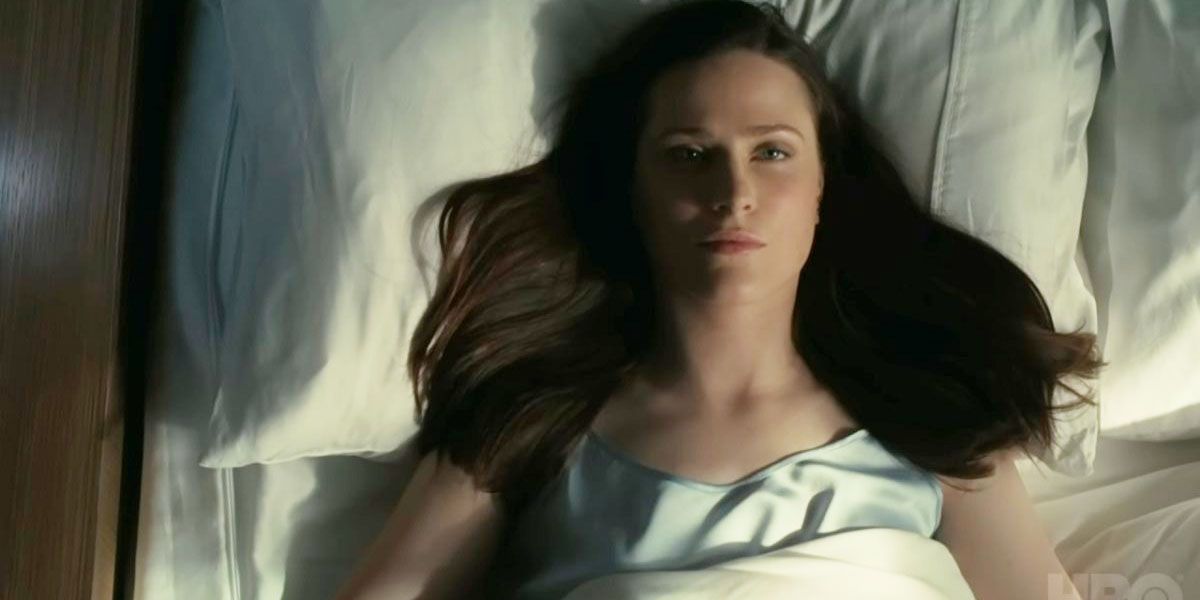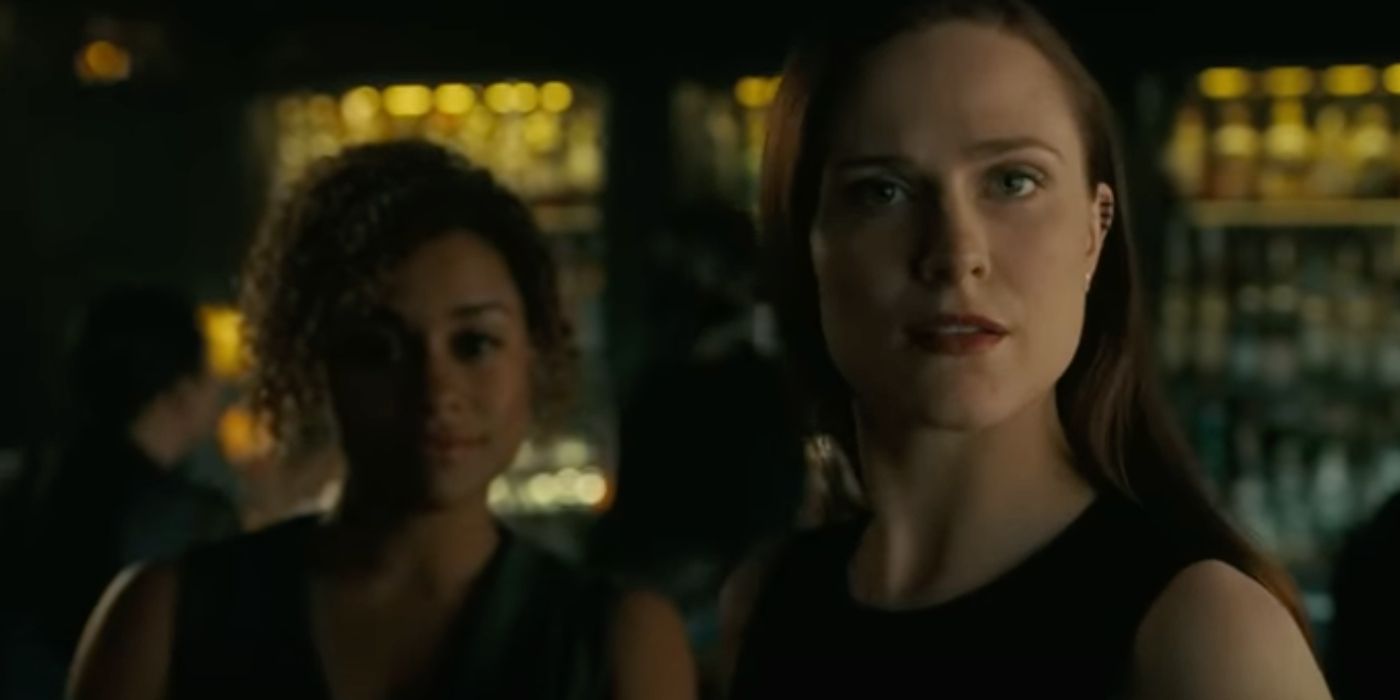Editor's note: The below article contains spoilers for the Season 4 premiere of Westworld.With its fourth season premiere, Westworld once again reinvents itself. With a seven-year time jump and several new characters, Season 4 shakes up what audiences have come to know from the show and requires viewers to reorient themselves to new locations and mysteries. No element of the premiere requires more reorientation than adjusting to Evan Rachel Wood’s new character, Christina. After playing the iconic, robotic host Dolores for three seasons, Wood is reintroduced as Christina, a (seemingly) human video game story writer at Olympiad Entertainment. Christina is positioned as one of the season’s new principal characters alongside fan-favorite Maeve (Thandiwe Newton), Season 3 lead Caleb (Aaron Paul), and the host copy of the villainous William (Ed Harris). The season premiere ends with Christina standing on her balcony, recording a pitch idea for a new story. As she dictates her thoughts, an instrumental cover of Lana Del Rey’s “Video Games” plays on the soundtrack. Like all great Westworld covers, the inclusion of this song is layered with meaning. Most significantly, “Video Games” is the perfect complement to introduce viewers to the thematic resonance of Wood’s new character.
Early in the episode, Christina is at her desk brainstorming a storyline pitch about a woman who takes care of her father and dreams of a different life. Her boss, Emmett (Michael Malarkey), interrupts her brainstorm to discuss her work performance. He explains to her that their gamers do not want the “saccharine” stories she writes, but instead want tales of violence, sex, and death. When Christina says she’s trying to broaden her generic range by adding romance and humor into her storylines, he tells her to “save that for your diary.” Emmett’s comments here suggest that the primary audience Christina should be writing for are men, as violence, sex, and death are often considered the elements male audiences want to see in video games. By relegating Christina’s “saccharine” stories to “her diary,” the conversation sets up a gendered binary between the stories Olympiad Entertainment wants to tell and those she wants to write. In essence, her boss discourages her from writing female-oriented stories that do not adhere to the alleged male-associated interests of their players.
At the end of the episode, Christina stands on her balcony brainstorming a pitch for a new story. Again, she thinks through a pitch about a woman searching for meaning in life, who finds what she’s been looking for and has a happy ending. When she finishes her idea, though, she dismisses her work as “stupid stories nobody wants to hear.” Her conversation with her boss clearly lingers and impacts her sense of creative self-worth. As her monologue builds to this point, the instrumental cover of “Video Games” swells on the soundtrack, dreamily accompanying the emotionality of the scene while also perfectly complementing the thematic concerns of Christina’s character through richly layered aural association.
Most noticeably, the song’s title references Christina’s career as a video game writer. The choice to pair the scene with this cover presents an immediate association between the scene and the song based on title alone. Far more significantly, though, are the ways Christina’s monologue and “Video Games” work together thematically.
The video games mentioned in “Video Games” refer to those played by the male addressee in Del Rey’s song. Throughout the song, she sings about video games as being an object of her lover’s entertainment. The repeated references to the video games emphasize the singer’s interest in centering the male object of her affection in her song. She sings, “It’s you, it’s you, it’s all for you/Everything I do.” The song’s lyrics thus find Del Rey placing a male object of affection at the center of her story. And yet, the haunting vocals and orchestration undercut the song’s romantic potential. The dissonance between the lyrical content and the music suggests that there is an underlying desire from the singer that has not yet been met by this romance.
Though Westworld’s cover is lyric-less, the melody is recreated through strings. The song thus retains its association with both the lyrics and music of the original record. The tension delicately crafted between the music and lyrics of “Video Games” is reflected in Christina’s monologue. Christina is being told to center masculine interests in her writing, but longs for the ability to write women-oriented stories. The sense of yearning found in “Video Games” is brought to Christina’s monologue to perfectly encapsulate her introduction. As her monologue is cross-cut with images of the other primary women characters featured in the premiere (Maeve, Uwade [Nozipho McLean], and Frankie [Celeste Clark]), it is clear that this sense of longing is thematically shared by the various female protagonists of Season 4. “Video Games” thus helps anchor Christina as a thematic center to this network of characters.
Del Rey’s song also helps to emphasize Christina’s humanness, assisting in viewers’ reorientation to Wood’s new role. On the surface, “Video Games” is a romantic ballad. However, the romance highlighted in the song does not mimic the grand gestures so often belted about in big ballads. Rather, the song foregrounds the everyday acts of romance that create a love story. From playing pool to, well, video games, Del Rey croons about the intimacy of the ordinary. As a character, Christina represents a refreshing change in the Westworld roster because of her ordinariness.
Of course, Christina is still wrapped up in sci-fi mystery boxes that will certainly semi-unravel by the end of the season (this is still Westworld, after all), but she also brings some much-needed humanity to the series. Many of her first episode conflicts revolve around navigating the more everyday aspects of life, rather than the dire end-of-the-world dangers that occupy much of the show. In one scene, Christina and her roommate, Maya (Ariana DeBose), discuss Christina’s lack of a social life. In another, Christina deals with the awkwardness of a first date. Through these simpler moments, Christina brings a new element to the show’s guiding question: “What does it mean to be human?”
“Video Games” not only perfectly complements Christina’s introduction by emphasizing her characterization, but it also helps to reaffirm the series’ commitment to feminist concerns. Since the show’s first season, Westworld has offered its viewers feminist potential through Maeve and Dolores’s journeys. It is clear through this scene with Christina and “Video Games” that the series has no intention of leaving its feminist stakes behind.



